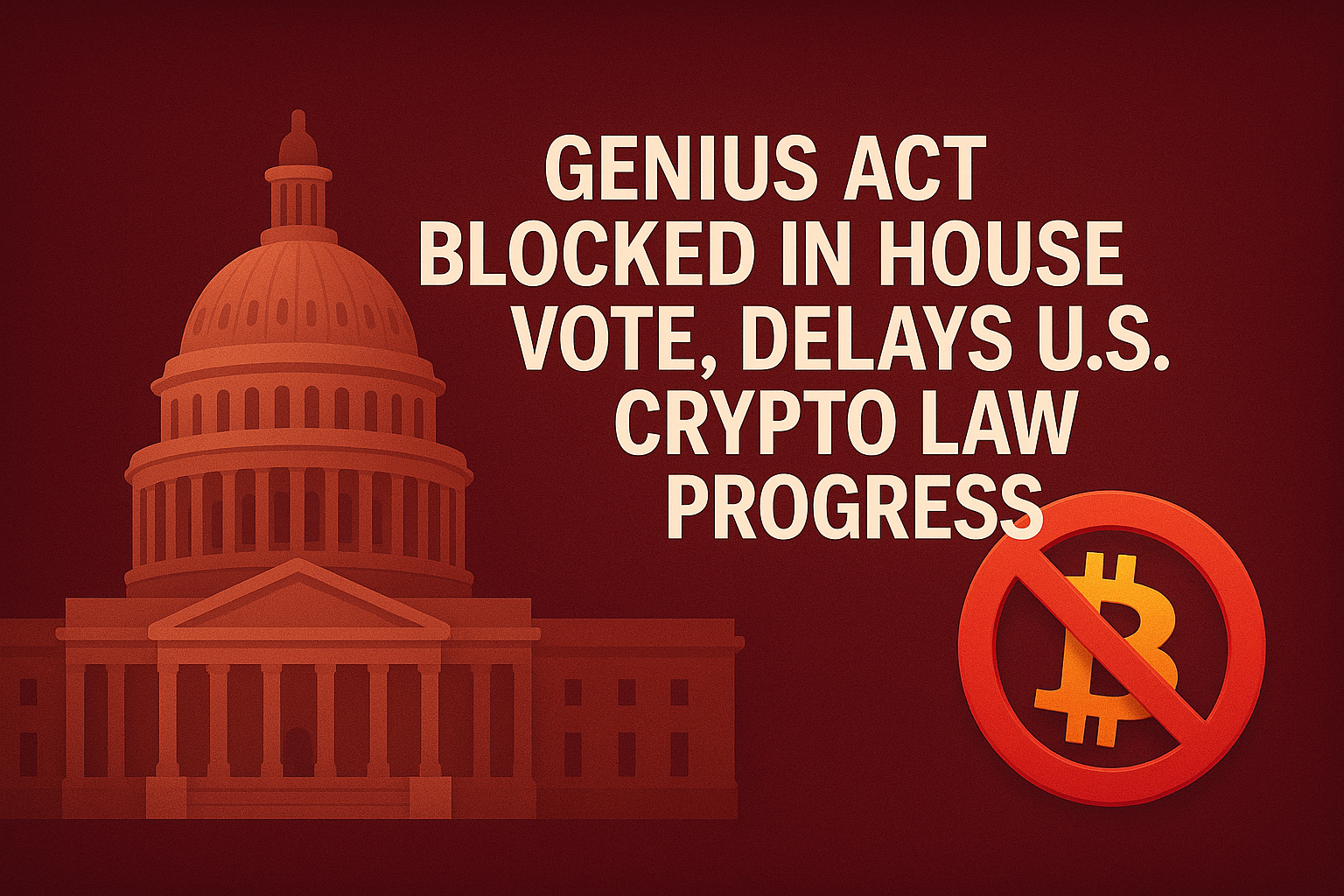
Last Updated on July 17, 2025
A series of dramatic events unfolded in Congress on Wednesday as lawmakers tried to push through major cryptocurrency legislation and finalize a major budget rollback, all while dealing with health scares and leadership tensions.
Following a turbulent confrontation, the U.S. House of Representatives has voted to proceed on three cryptocurrency bills and a 2026 defense spending bill. This was following the conservative Republicans who previously stalled the effort, withdrawing their objections, after negotiating with the House leaders and a phone call with former President Donald Trump in the late-night hours. The legislators had demanded the inclusion of a prohibition on a central bank digital currency (CBDC) in the package. The chairs of the Financial Services and Agriculture committees were opposed, but the group agreed to amend the legislation to ban CBDC by snipping it onto a must-pass defense bill. House then voted on the procedural rule 217 to 212.
House leaders are anticipated to vote on the stablecoin bill (GENIUS Act) in the near future, and it would end up on Trump, the first substantial crypto bill ever enacted by Congress. Next week a vote on the market structure bill (CLARITY Act) could occur.
Meanwhile, the government funding bill of the FBI is in action by the Senate to be passed along with other agencies such as NASA and the Justice Department. It took a step forward when Sen. Lisa Murkowski got new guarantees that the FBI headquarters would not move to Maryland, but would remain in Washington, D.C.
Meanwhile, Democratic Senator Tina Smith was hospitalized after feeling unwell while working at the Capitol. She is expected to return soon, but missed important votes on a bill to cut $9 billion in government spending. This includes large cuts to foreign aid and public media. Without her vote, Democrats are struggling to make changes to the package.
Senate Republicans rejected efforts by Democrats to stop these cuts. Amendments to save $496 million in international disaster aid and preserve funding for public safety broadcasting both failed. Some Republicans joined Democrats in opposing the cuts, but not enough to stop the overall measure.
As voting on the cuts continues in the Senate through a “vote-a-rama,” Republican leaders appear confident the final package will pass. Any changes by the Senate will require House approval again before the July 18 deadline.
In other news, Rep. Max Miller of Ohio announced plans for a new crypto tax law. He said the bill will include tax-free treatment for small crypto transactions and clearer rules for crypto activities like mining and staking. Miller said the goal is to update the tax system to match new technology.
Separately, Sen. Bill Cassidy of Louisiana is facing strong MAGA opposition for his past impeachment vote against Trump. Still, he holds a large fundraising lead over his challengers. A pro-Cassidy super PAC has also raised $2.5 million to support his campaign.
And over at the White House front, there is a quiet deliberation on who would succeed Sen. Susan Collins of Maine in the event that she does not seek re-election. Although she has indicated her intentions to remain in office, Trump is said to be willing to replace her with a more robust Republican candidate.
Lastly, a former senior staff member of Jill Biden, Anthony Bernal, took the Fifth Amendment in a congressional probe on the use of an autopen by President Biden and the issue of mental fitness. He is together with the physician of the president, who also refused to testify. House Republicans indicate that they can consider criminal referrals.
Congressional leaders have a narrow window to hammer out the crypto bills as well as the funding cuts, and further negotiations are likely to take place in the next few days.




































